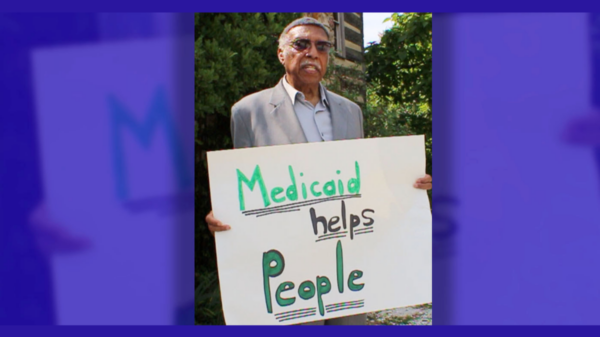
By Sylvia Powers
Texas Metro News
For many people, the concept of artificial intelligence (AI) can be scary, but scientists are currently using this thought-provoking technology to predict heart attacks, decrease the impact of illness, and even detect depression.
In the rapidly evolving land- scape of AI, DeLorean AI is making scientific strides in the medical industry. Inspired by the time-traveling car from the “Back to the Future” series, DeLorean AI is looking to change interaction with and utilizing AI in the healthcare field. This five-year-old technology is driving forward AI’s capabilities; making it more predictive, adaptive, and responsive for patients.
“We are probably the first technology in the world of AI to be what is called biologically validated, which means that our pre- diction and forecasts have been proved to be true and accurate by a number of third-party organizations,” said Severance MacLaughlin, Ph. D., who is a founding and managing partner of DeLorean AI.
Dr. MacLaughlin is a thought leader in the application of artificial intelligence, data sciences, & advanced analytics.
According to MacLaughlin, DeLorean AI uses electronic medical records, healthcare records, and hospitalization records with a high accuracy rate. Their website indicates the accuracy rate is 85 to 87 percent. The technology focuses on five health modules: renal disease, diabetes, cardiovascular disease, behavioral health, and respiratory disease.
“We currently process over 52 million patients; next year, it will be in the hundreds of millions,” said MacLaughlin. “What this model does is predict if someone is going to have an adverse event in the future, or they’re going to get worse, or even if they are going to have a disease. Based on the information we provide, we can give the doctors and nurses the next best actions needed for the patient to prevent the disease from progressing.”
This innovative technology is currently used in 450 clinics and by three insurance companies in the United States. According to MacLaughlin, they are having conversations with Canada and making plans to move internationally.
“We can predict a heart attack within three weeks with about 89 percent accuracy rate, or we can decrease hospitalizations for some of our clients by 25% which equates to about three months,” said MacLaughlin.
Although people fear that AI might replace humans, MacLaughlin stressed that DeLorean AI’s technology is not replacing doc- tors or nurses. However, it is giving them a better decision tool to help increase healthy outcomes.

“The patient’s information never leaves the doctor’s office or the insurance company. DeLorean AI produces those predictions and the next best actions to keep the patient healthy, and that is integrated right at the point of care at the doctor’s office,” said MacLaughlin. “When the doctor turns and sees you, and your electronic medical record comes up, AI has made predictions in their records for the doctor to look at.”
DeLorean AI is also taking steps to improve high-risk pregnancies and enhance the outcome of soft tissue injuries.
“We are working to make sure mothers are able to carry their babies full term so that we can hopefully avoid premature births,” said MacLaughlin.
With this enhanced technology, DeLorean also hopes to help reduce some racial disparities in health care.
“I’ll give you an example of what we have been able to do with our mental health technology. One of our largest insurance companies asked us to do this,” he continued.” The results are phenomenal because it’s prompting doctors to ask better questions of their patients to see if they have a mental illness or if they are suffering from depression.”
Since some cultures don’t talk about mental health, he explained, it is hard to determine which individuals have mental health issues.
“What we’re doing now is flagging those patients so the doctors can ask more probing questions so they can get the treatment that they need,” said MacLaughlin, adding that he hopes the impact being made by DeLorean AI will break the stereotypical barrier about the scientific use of AI to improve the quality of life.
“When AI is used responsibly and developed by scientists such as ourselves over a period of time using scientific methods, it can generate life-saving results,” said MacLaughlin.
Andy Paul, the founder of Sopris Venture Capital, and James Chow, who served as CFO for Oak Street Health are providing the financial backing for DeLorean AI.
Sylvia Powers is a writer and photojournalist for I Messenger Media. An author and activist, she is the founder of the Celebrating Life Foundation and an advocate for women’s health. Write to her at editor@texasmetronews.com.









You must be logged in to post a comment Login